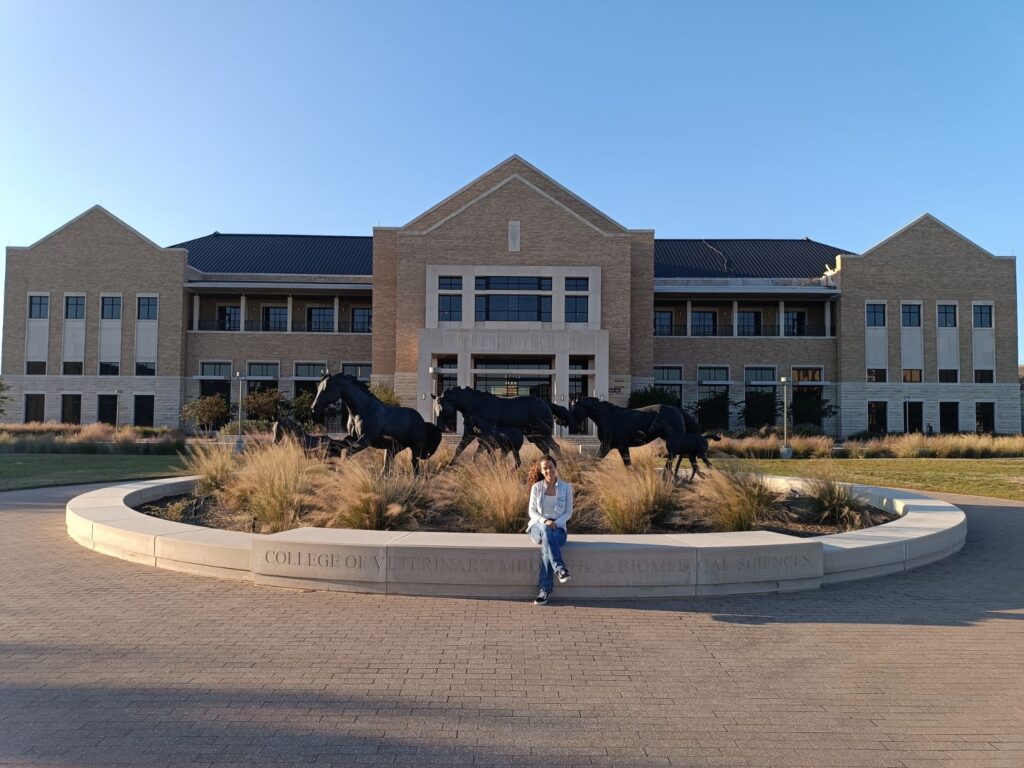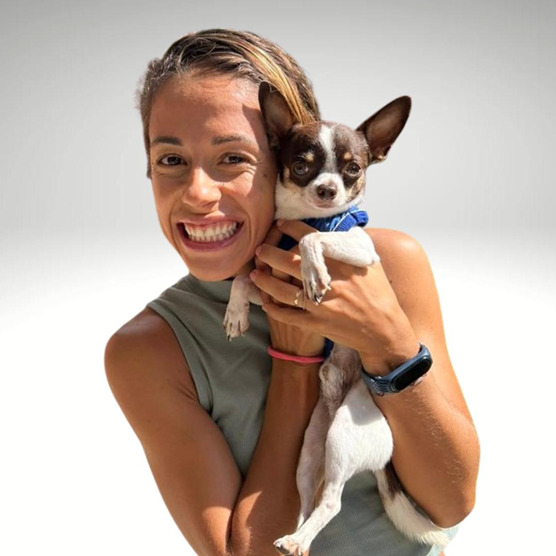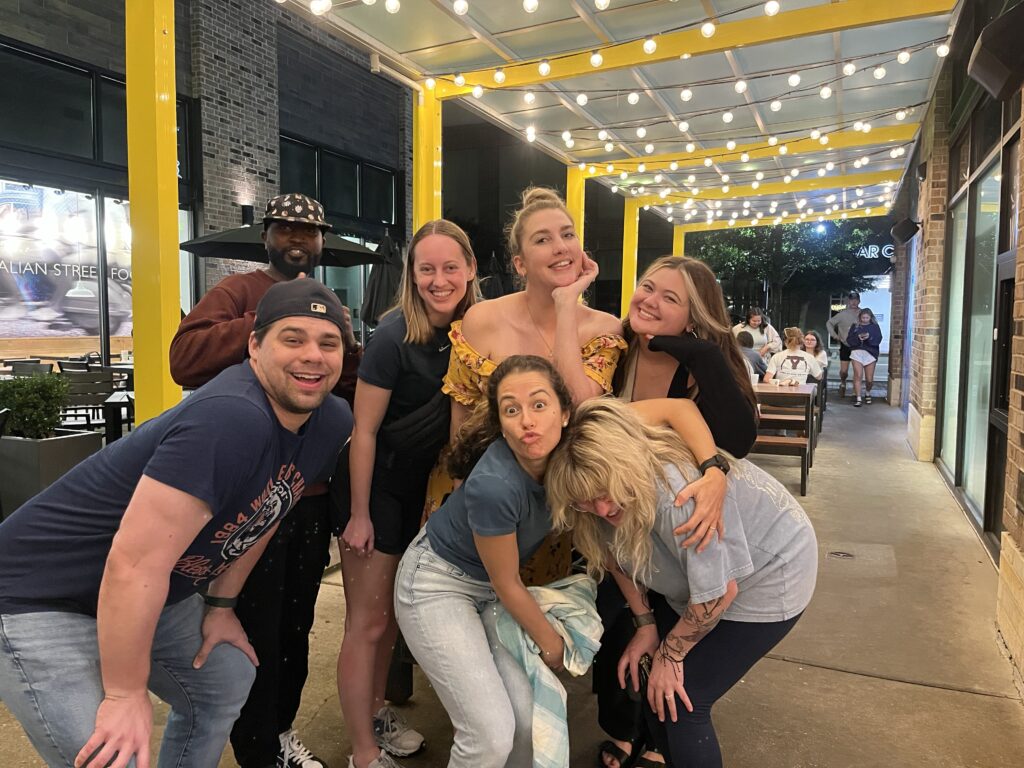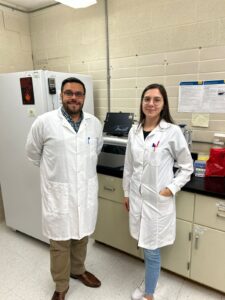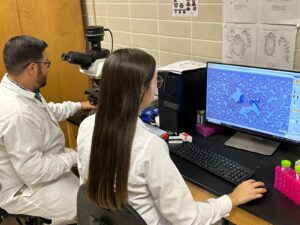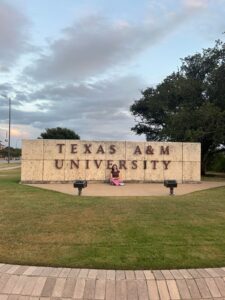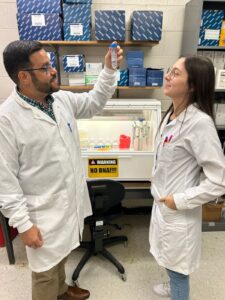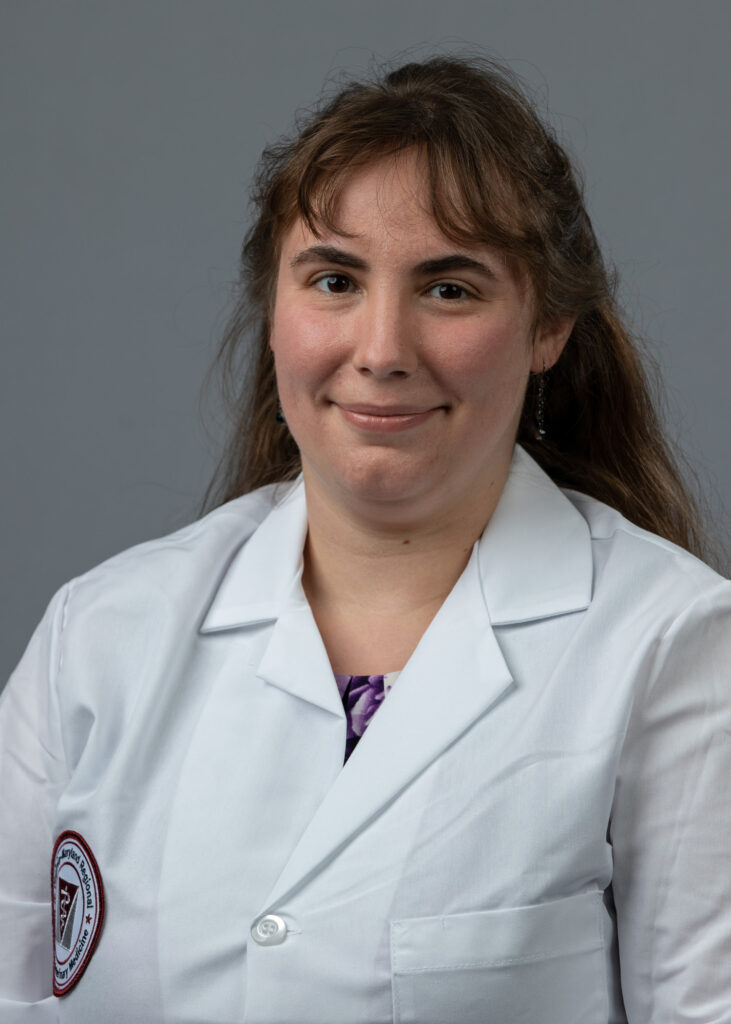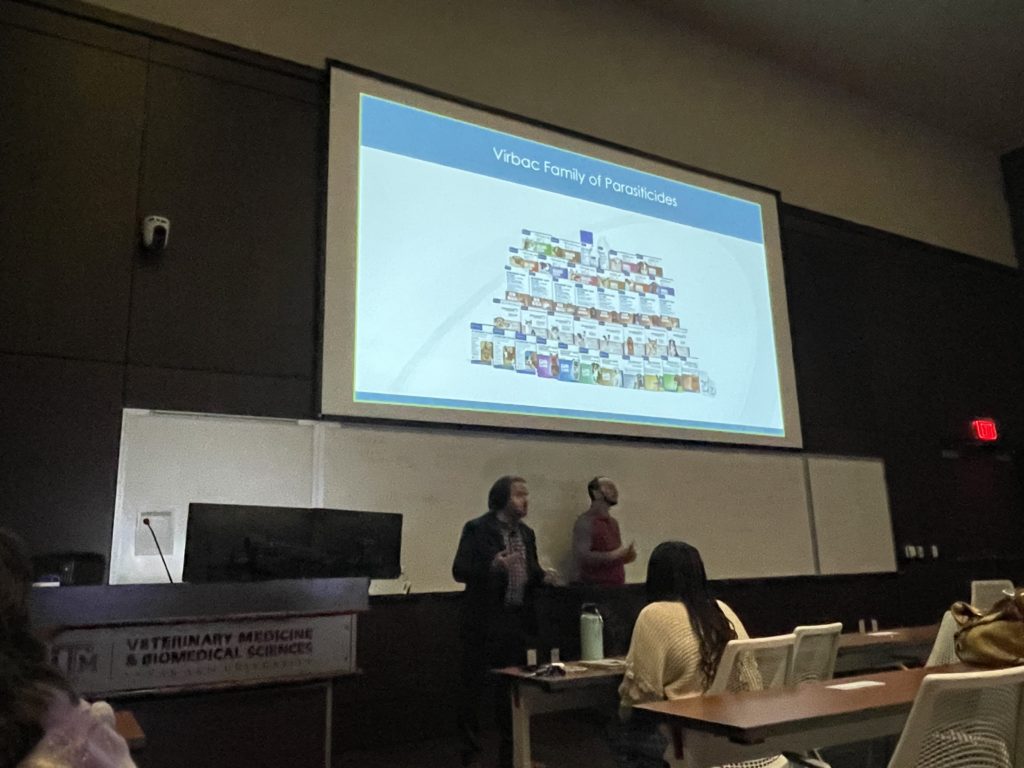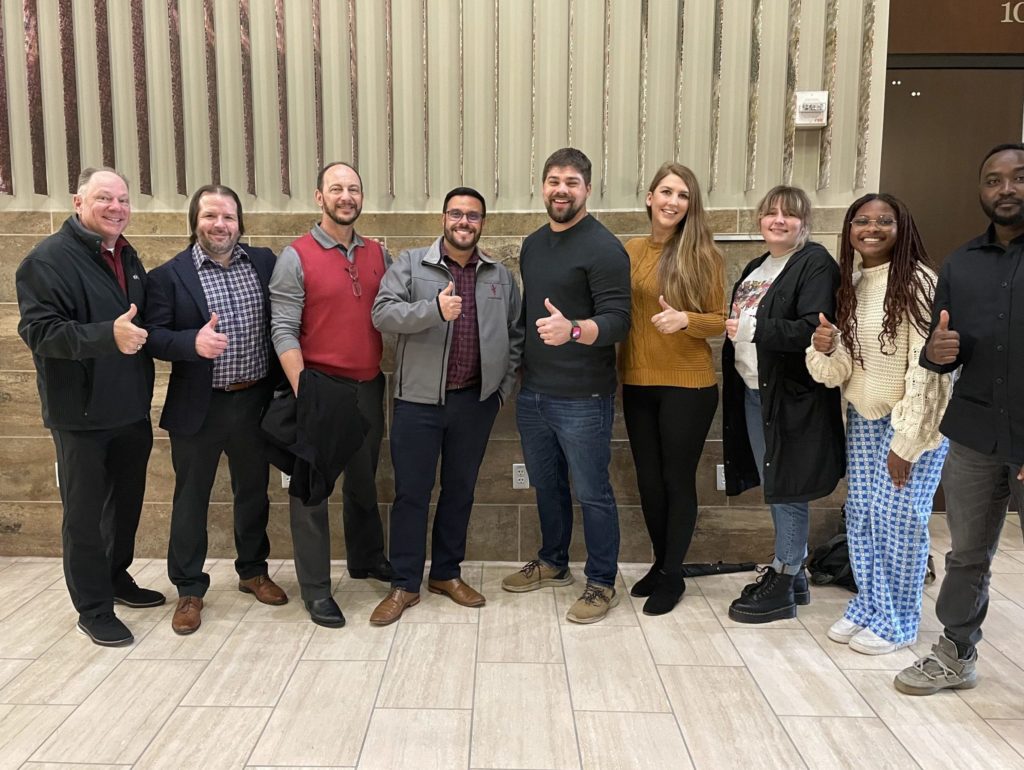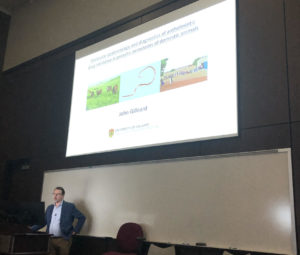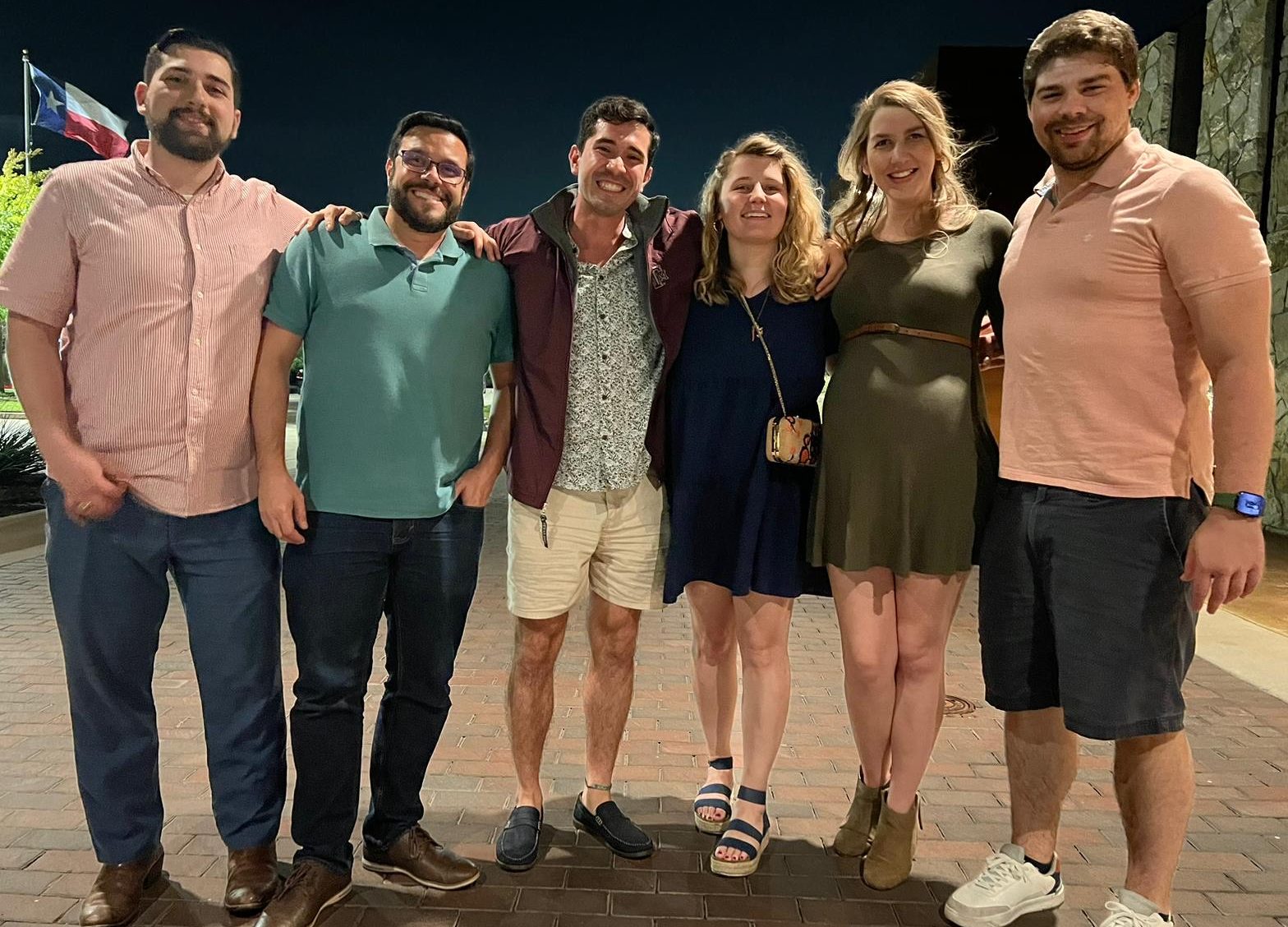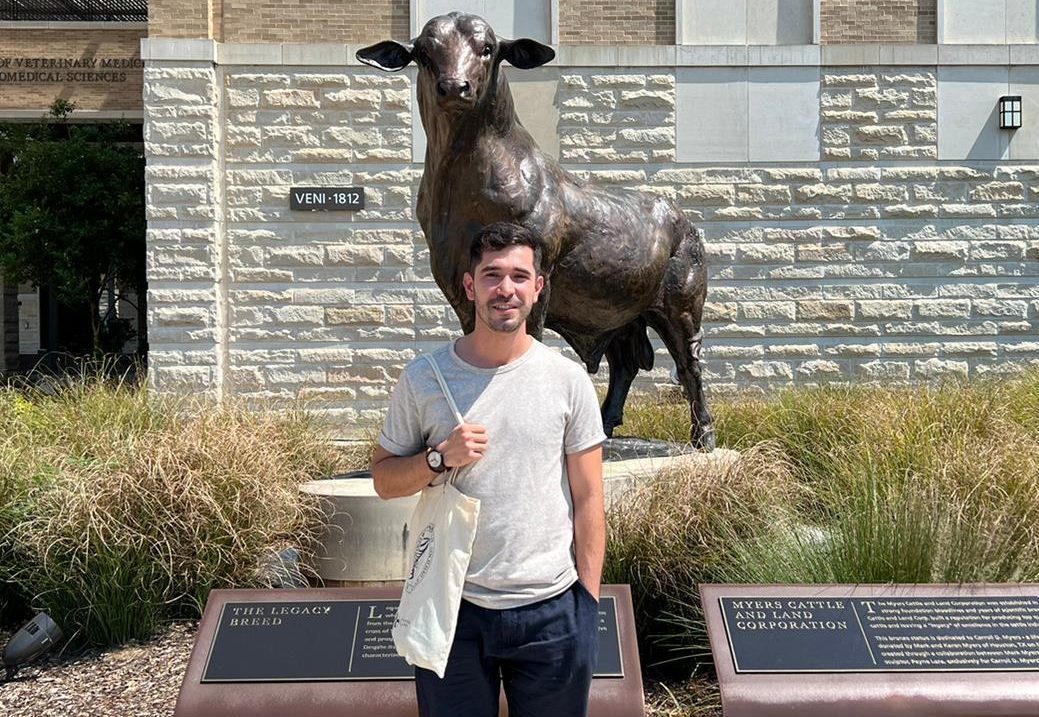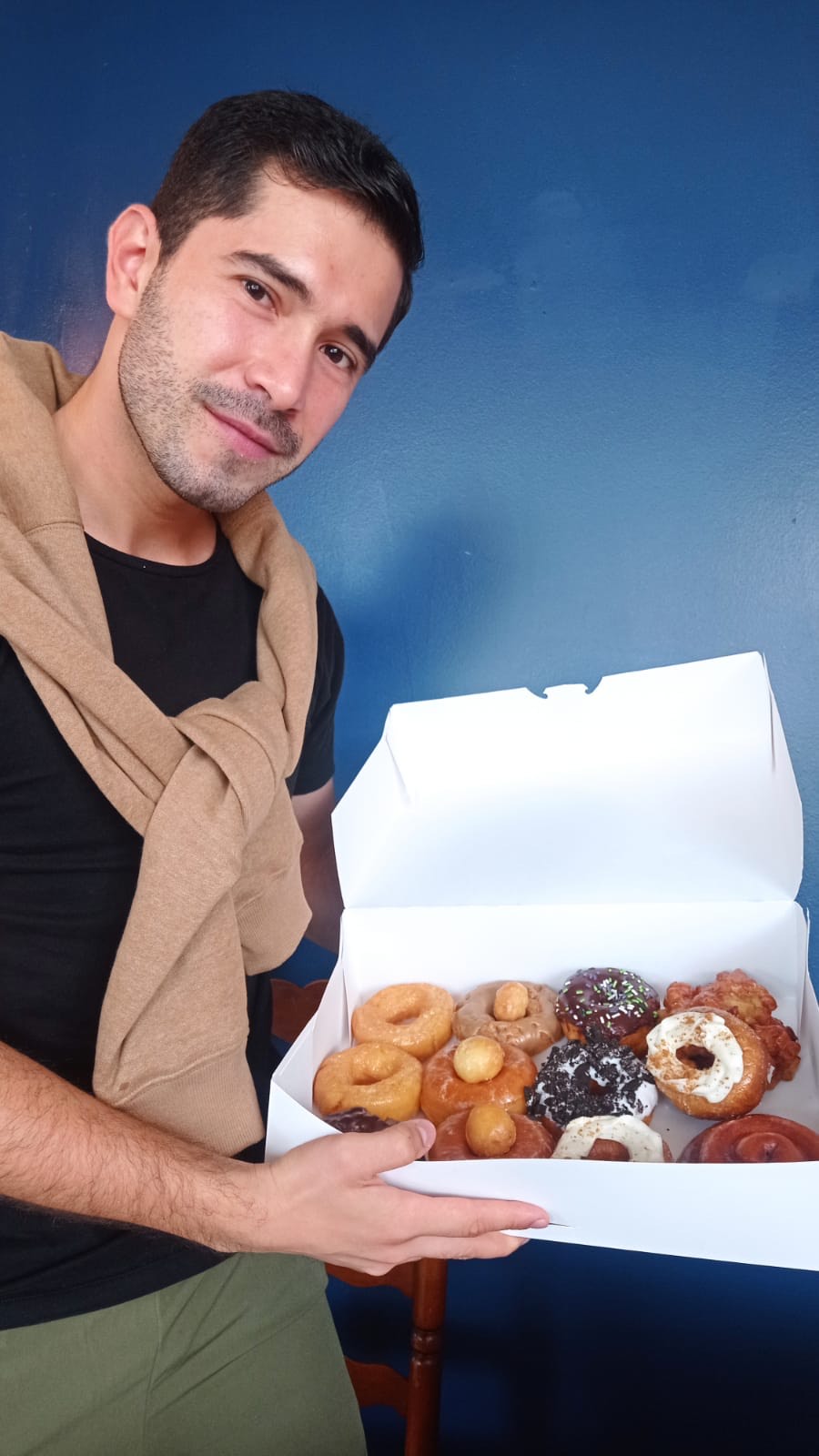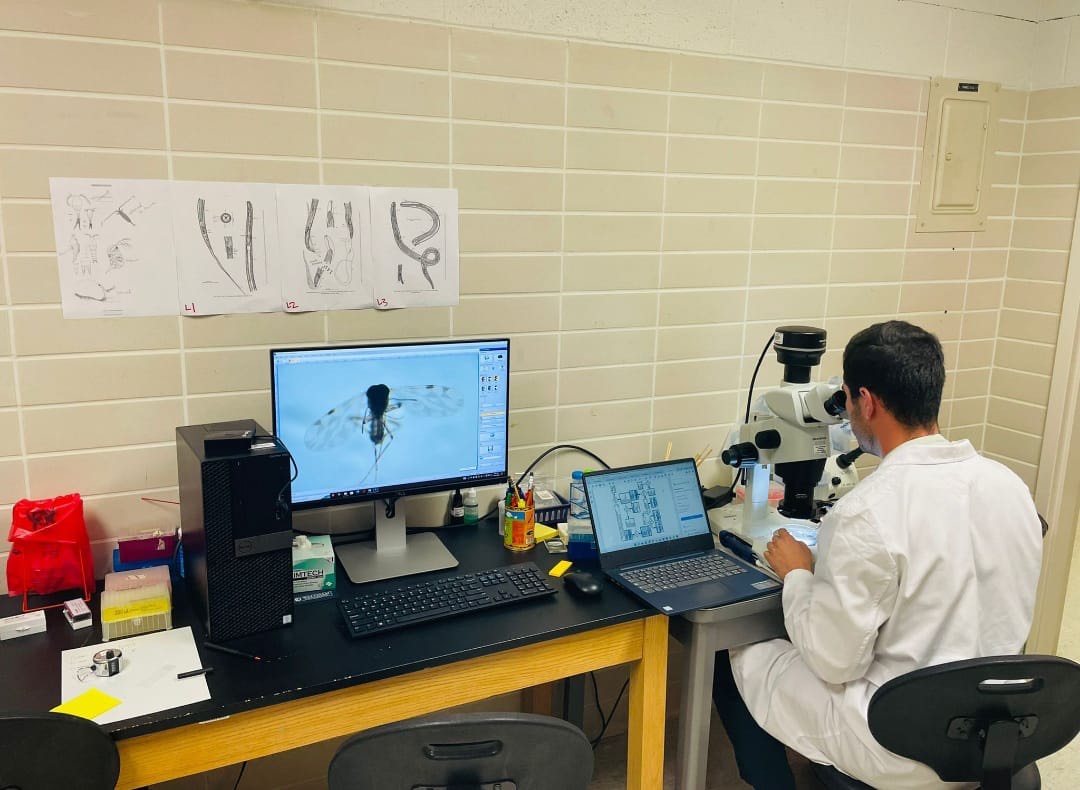My name is Ana Clara, and I am a veterinarian currently in the third year of my Ph.D. at the Universidade Estadual de Santa Cruz (UESC) in Bahia, Brazil. In November 2024, I had the privilege of joining Dr. Verocai’s lab at Texas A&M University as part of a research exchange program. My main goal here is to expand my studies in veterinary parasitology and gain practical experience in a leading research environment.
Throughout my academic journey, I have developed a strong passion for science and small animal clinical practice. During my Ph.D., my research has focused on parasitic diseases in small animals, particularly Dirofilaria immitis, a zoonotic disease of increasing importance due to its impact on both animal and public health. This experience at Dr. Verocai’s laboratory has provided me with invaluable resources and support, allowing me to learn from experts who share a passion for science and believe that a collective effort is required to advance research and create meaningful changes.
Being here has been an incredible opportunity for both professional and personal growth. I am excited to contribute to the lab’s projects while expanding my expertise and exchanging ideas with other dedicated researchers. This experience marks an important moment in my academic journey and reinforces my commitment to science and the advancement of animal health.
